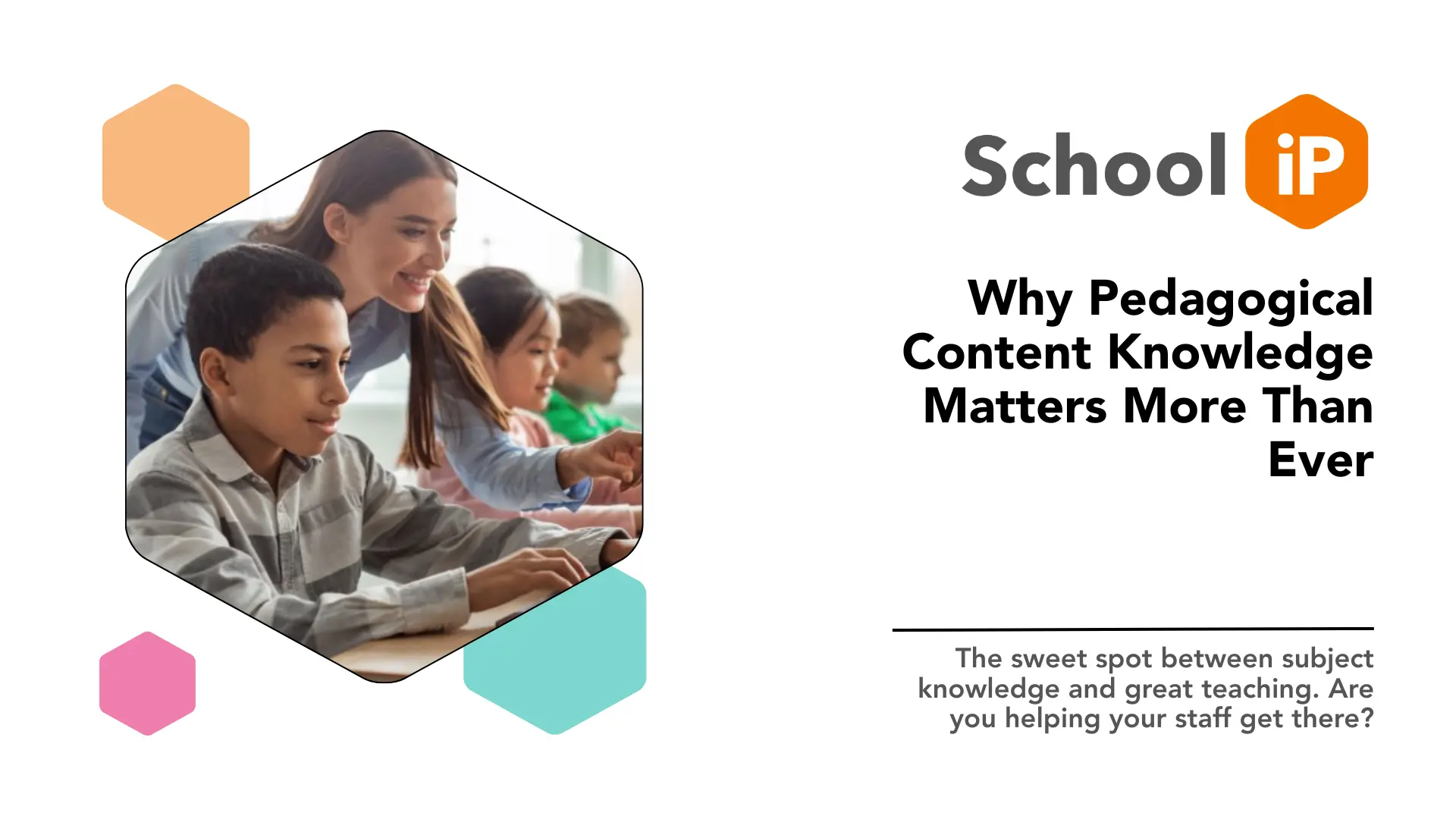Why Pedagogical Content Knowledge Matters More Than Ever


If your school’s CPD programme is packed with strategies like retrieval practice, metacognition, and adaptive teaching, you’re not alone. These ideas are important. They’re backed by research. But they’re also incomplete.
Why? Because great teaching doesn’t just come from knowing how to teach, it comes from knowing what to teach, to whom, and in what way.
This is where Pedagogical Content Knowledge (PCK) comes in. And right now, it’s the most overlooked lever for improving teaching and learning.
First defined by educational psychologist Lee Shulman in the 1980s, PCK is the intersection of three things:
Subject knowledge - deep understanding of what’s being taught
Pedagogical knowledge - strategies for how to teach effectively
Contextual knowledge - awareness of students’ needs, backgrounds, and misconceptions
When these elements come together, a teacher doesn’t just know their subject, they know how to make it make sense for their learners.
It’s the difference between listing the steps in a maths method and anticipating where students will go wrong. Between knowing grammar rules and designing activities that bring them to life. Between being an expert and being an effective teacher.
As schools navigate a post-pandemic world of curriculum reform, skills gaps, and inspection pressure, the need for deeper, more targeted teaching has never been clearer. Generic CPD isn’t enough. Teachers need time and tools to develop the kind of nuanced knowledge that improves day-to-day practice.
At Newham College, for example, all CPD activities were aligned to a core goal: strengthening teachers’ pedagogical content knowledge. Through self-directed experiments, weekly newsletters, and coaching-style observations, teachers weren’t just told what to do, they were asked to reflect on how their subject, students, and teaching style aligned.
It shifted the focus from compliance to craft. And it showed results in both staff engagement and student outcomes.
Encourage teacher-led inquiry
Let teachers choose a focus relevant to their subject and learners. Frame CPD as an investigation, not a directive. What do they want to improve? What’s the evidence? What impact does it have?
Use coaching and collaboration
Move away from one-off INSETs. Use observations, peer reviews, and collaborative planning as opportunities to build PCK in context. Encourage teachers to share what’s worked in their subject area.
Capture reflection and growth over time
If teachers are refining how they teach a concept or theme, help them log that learning. Reflection isn’t a soft skill, it’s a driver of improvement.
At SchooliP, we believe great teaching starts with deep thinking. Our platform is designed to make pedagogical content knowledge visible, trackable, and meaningful.
Using SchooliP, staff can:
Set development objectives that focus on PCK growth
Log reflections and evidence linked to specific subject teaching
Link their CPD to frameworks like ETF standards or your school’s curriculum goals
Engage in non-judgemental, coaching-based observations that focus on how teaching works in practice
Leaders, in turn, gain a clear view of how teaching is evolving, not just what was “delivered”, but what’s been learned and applied.
When teachers grow in their pedagogical content knowledge, everyone benefits. Lessons become more precise. Students engage more deeply. And schools move from surface-level improvement to sustained, high-impact teaching.
It’s time we made PCK the beating heart of professional development, and gave teachers the tools and trust to grow it.